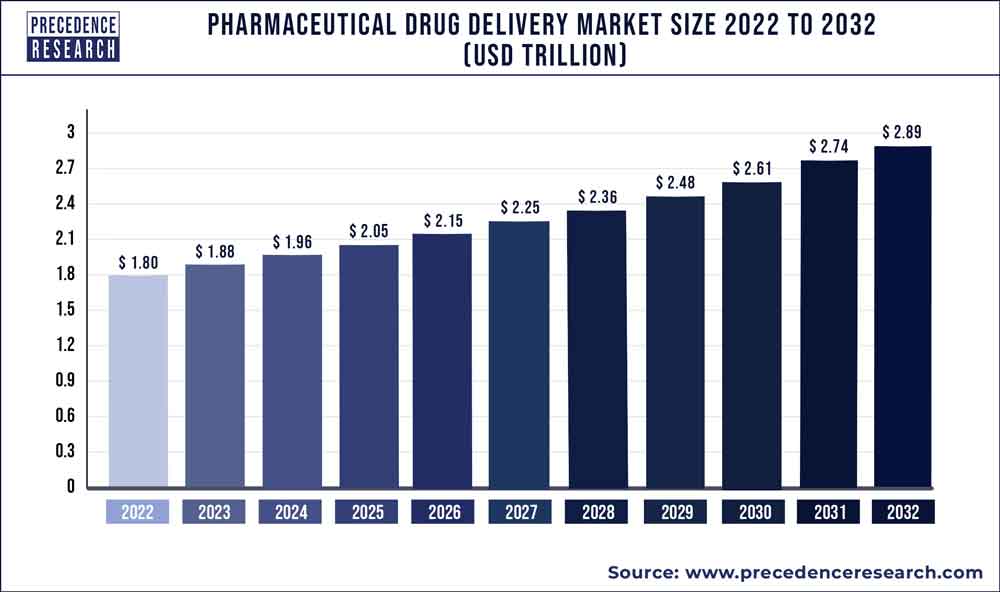
The pharmaceutical industry stands as a beacon of innovation, a guardian of public health, and a driving force in the global economy. With a mission to discover, develop, and deliver life-saving medicines, pharmaceutical companies play a pivotal role in shaping the well-being of individuals and societies worldwide. This blog explores the multifaceted dimensions that make the pharmaceutical industry a global powerhouse, encompassing its economic impact, research and development endeavors, regulatory landscape, and the continuous pursuit of excellence in healthcare.
Introduction
The pharmaceutical industry, often referred to as the “medical lifeline,” holds a unique position in the global landscape. Beyond its role in providing essential medications, it serves as an engine of economic growth, a bastion of scientific innovation, and a beacon of hope for patients facing challenging health conditions.
The pharmaceutical industry is a vast and complex sector responsible for the discovery, development, production, and marketing of pharmaceutical drugs. These drugs play a vital role in improving human health and well-being by curing and preventing diseases, alleviating symptoms, and saving lives.
Here are some key facts about the pharmaceutical industry:
- Market Size: The global pharmaceutical market was valued at US$1.2 trillion in 2020 and is expected to reach US$1.5 trillion by 2027.
- Growth: The industry is expected to grow at a compound annual growth rate (CAGR) of 2.4% during the forecast period (2022-2027).

- Segments: The major segments of the pharmaceutical industry include:
- Prescription drugs: These require a doctor’s prescription to be dispensed.
- Over-the-counter (OTC) drugs: These can be purchased without a prescription.
- Generic drugs: These are copies of brand-name drugs that have gone off patent.
- Biologics: These are drugs made from living organisms.
Top pharmaceutical companies
The pharma industry is comprised of some major multinational companies. Based on prescription drug sales, U.S. company Pfizer has been among the world’s leading pharmaceutical companies for many years. The company, which has its global headquarters in New York City, generated total revenues of more than 100 billion U.S. dollars in 2022.
- Leading Companies: Some of the leading pharmaceutical companies include:
- Johnson & Johnson
- Pfizer
- Roche
- Novartis
- Merck & Co.
- GlaxoSmithKline
- Sanofi
- AbbVie
- Bristol Myers Squibb
- Eli Lilly and Company
Economic Impact
Job Creation and Economic Growth
The pharmaceutical sector is a significant contributor to job creation and economic growth. From research scientists to manufacturing professionals, the industry sustains a diverse workforce. The establishment of pharmaceutical companies creates a ripple effect, fostering the growth of supporting industries and contributing to economic development.
Investment and Expenditure
Pharmaceutical companies invest heavily in research and development (R&D), infrastructure, and technology. These investments not only drive innovation but also stimulate economic activities in the regions where these companies operate. The pharmaceutical industry’s expenditure extends to clinical trials, regulatory compliance, and the production of high-quality medications.
Research and Development (R&D)
Innovation as the Driving Force
Innovation is the lifeblood of the pharmaceutical industry. Companies engage in extensive R&D efforts to discover novel drugs, improve existing treatments, and address unmet medical needs. The continuous pursuit of scientific breakthroughs propels the industry forward, fostering a culture of discovery and advancement.
Drug Development Pipeline
The drug development pipeline represents the journey from initial discovery to market availability. Pharmaceutical companies navigate through rigorous testing, clinical trials, and regulatory approvals to bring new drugs to patients. The pipeline reflects the industry’s commitment to improving health outcomes and addressing global health challenges.
Regulatory Landscape
Ensuring Safety and Efficacy
Regulatory agencies, such as the U.S. Food and Drug Administration (FDA) and the European Medicines Agency (EMA), play a crucial role in safeguarding public health. Rigorous regulatory processes ensure that medications meet stringent standards for safety, efficacy, and quality before reaching patients. This commitment to regulatory compliance is fundamental to the industry’s credibility and the well-being of individuals.
Global Harmonization
The pharmaceutical industry operates in a complex regulatory environment with variations across regions. Efforts toward global harmonization aim to streamline regulatory processes, reduce duplicative efforts, and accelerate the availability of new treatments on a global scale. Collaborative initiatives enhance efficiency and facilitate the timely delivery of medications to patients worldwide.
Global Healthcare Challenges
Addressing Global Health Disparities
The pharmaceutical industry is at the forefront of addressing global healthcare challenges. Companies engage in initiatives to combat infectious diseases, provide access to essential medicines in underserved regions, and contribute to the eradication of diseases that disproportionately affect vulnerable populations.
Pandemic Response
The industry’s response to global health crises, such as the COVID-19 pandemic, underscores its commitment to public health. Rapid development, testing, and distribution of vaccines and therapeutics demonstrate the agility and collaborative spirit within the pharmaceutical community.
Pharmaceuticals and Public Health
Disease Prevention and Treatment
Pharmaceuticals play a pivotal role in preventing, managing, and treating a wide array of diseases. From antibiotics that combat infections to biologics that target complex conditions like cancer, the industry’s products contribute significantly to enhancing quality of life and extending life expectancy.
Chronic Disease Management
The rising prevalence of chronic diseases poses a global health challenge. Pharmaceutical companies are dedicated to developing therapies that effectively manage chronic conditions, offering patients the opportunity for a healthier and more productive life.
Challenges and Opportunities
Research and Development Hurdles
Despite advancements, R&D in the pharmaceutical industry is fraught with challenges. High development costs, stringent regulatory requirements, and the inherent risks associated with drug discovery create hurdles. However, these challenges also present opportunities for innovation and collaboration.
Access to Medicines
Ensuring equitable access to medicines remains a persistent challenge. Pharmaceutical companies, alongside governments and non-profit organizations, are exploring sustainable models to enhance access, particularly in low-income and middle-income countries.
Future Trends and Technologies
Precision Medicine
The advent of precision medicine marks a paradigm shift in treatment approaches. Tailoring medical interventions based on an individual’s genetic makeup and specific disease characteristics holds immense promise for personalized and effective therapies.
Digital Health and Telemedicine
Digital health technologies and telemedicine are reshaping healthcare delivery. Pharmaceutical companies are embracing these innovations to enhance patient engagement, improve adherence to medications, and contribute to a more connected and patient-centric healthcare ecosystem.
Sustainability in Pharma
Environmental Responsibility
The pharmaceutical industry recognizes its environmental impact and is actively pursuing sustainable practices. From eco-friendly manufacturing processes to reducing the carbon footprint of supply chains, companies are aligning with global sustainability goals.
Corporate Social Responsibility
Corporate social responsibility (CSR) initiatives are integral to the industry’s commitment to societal well-being. Pharmaceutical companies engage in philanthropy, community outreach, and initiatives that address broader social and environmental challenges.
Conclusion
Forget sterile labs and sterile suits. The pharmaceutical industry’s impact pulses through markets and minds, propelling economies forward and birthing scientific marvels. It’s the beating heart of a healthier world, where every discovery is a victory won in the fight against disease. In the face of global complexities, pharma stands resolute, a testament to human resilience and unwavering commitment to well-being for all. As collaboration builds bridges, innovation unlocks doors, and inclusivity throws open the gates, the pharmaceutical industry stands poised to write the next chapter in global health’s transformative story.
Overall, the pharmaceutical industry is a vital sector that plays a critical role in improving human health and well-being. While the industry faces a number of challenges, it is expected to continue to grow in the coming years, driven by an aging population, rising incomes, and technological advancements.
As stakeholders in the global healthcare ecosystem, let us recognize and celebrate the contributions of the pharmaceutical industry. By fostering collaboration, supporting research endeavors, and advocating for equitable access to medicines, we can collectively contribute to a healthier and more sustainable future for all.
Leave a Reply